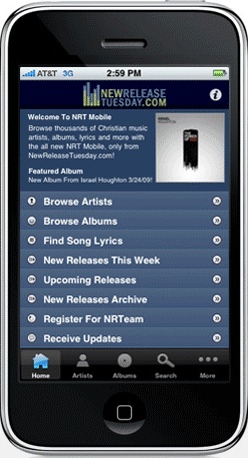Talking about Death with 5th Graders
Here's an outline of the program for your critique. If you are struggling with the same situation, then hopefully this gives a framework to help. If you have expertise in child psychology/theology, then by all means critique! Your comments could help all of us!
Special note: We included a trip to a local cemetery in a respectful manner, which you may or may not want to include. We did 2/3 of the program there to make it as immersive as possible, weather permitting. We also chose a historical graveyard rather than an active one for reasons found on Talk #2, but an active graveyard could work too in consultation with the cemetery staff.
- Student Reading: "Hello, my name is Stephen and I'm in 4th grade. I wonder if death is like being scared. I get scared. I get scared when a car almost hits me. I get scared when I see the bully at school. I get scared when I get a D on a test and have to tell my dad. I get scared when I break something and I just know I'm gonna get into trouble. I get scared of things when I don't know what is going to happen. I get scared when people die. I don't know what happens to them. I asked my dad, I asked my minister, I asked God at night and I don't get any answers. What is death and how can I not be scared of it?"
- Reflection
- When do you get scared?
- Is it OK to be scared sometimes? Sure it is.
- One of our friends has died, hasn't she? Is that a scary thing? What are people scared of, do you think?
- Activity - Circle Heart
- Make a circle tapping your heart.
- What happens when you get scared? Does your heart beat really fast?
- If you are just walking, heart thumps normally. When you run or play sports, have you ever felt your heart pump faster? When you see that cute girl or boy, what happens? And when you get scared, what happens?
- But think about all of us as one beating heart, beat together. When you get older, your heart doesn't beat as well. When you have an accident or a heart attack, entire parts of your heart stop working. And finally, at the end of your life, there's usually just one. And then, none.
- So what happens when your heart stops? We're gonna go and find out. We're gonna go visit a cemetery. Anyone here afraid of cemetaries? I used to be, and I probably wouldn't go to one in the middle of the night. But it's a nice day and we're gonna go, ok? Great.
- One rule: if someone needs to cry, then cry. No one will make fun of you. If they do, they get sent home. I'm that serious.
12:40-12:45 - Drive to Local Cemetery (we went to a historical Indian Nations cemetery where 99% of the plots were from prior to 1913)
- Student Reading: "Hello! My name is Abigail, and I'm in 5th grade. I wonder if death is like being hurt. Have you ever been hurt before? I have. I have skinned my knees. I have cut my finger. I have broken my arm trying to fly off a swing. And you know what? It really really hurts! But it hurts the most when it happens, right? A skinned knee hurts SO MUCH at first, but then it gets better. A scab hurts but only at first...after a few days I can pick it off, and that's really cool? My skin is different color underneath. Cool! I bet that death hurts a lot because when I heard my grandma died, that hurt a lot. But after a while, it didn't hurt as much. I can talk about it now without crying. So talking about death hurts a lot at first, but then it gets easier. It's like our heart got hurt and it slowly heals."
- Reflection
- Whose tummy hurt really bad when you heard about ((deceased)). Mine did. I cried and my tummy hurt. I cried and my tummy hurt when my grandpa died 15 years ago. But now I can talk about it without hurting too much, still a little.
- We are right now in a cemetery. It was stopped being used in 1913. So these people have been dead a very very long time. They don't hurt anymore. It doesn't hurt anyone that we are here. Everyone that is alive today did not know any of them.
- Discussion
- Let's look at the first gravestone together. What was their name? What was their age?
- Do you think it hurt people when they died? Why? They wrote something here too: (inscription)
- This probably hurt a lot when they died. But that was a long time ago and no one is sad about these people dying anymore. This place is a memorial, a memory. It's a safe place. But we can find out some things about them.
- Emphasize respect, no running, stay in pairs
- Handout on cardstock, pens
- Who is the youngest person you found? What was their age? name?
- Who is the oldest person you found? What was their age? name?
- Sketch/Draw your favorite gravestone as best you can.
- Student Reading: I wonder if death is like becoming a dragonfly.
Hello, my name is Ayita, and I am in 6th grade. I have a story for you. Once upon a time, there was a colony of water bugs below the surface of the water. Over time the water bugs realize that occasionally another water bug from their colony clings to the stem of a pond lily. As it climbs up the lily stalk, it disappears and does not return.The leader of the colony of water bugs gathers his friends together and together they make a promise that whoever climbs up the stalk next must return to tell where they went and why.It just so happens that the leader is one of the next water bugs to be told to climb up the stalk. Tired from his journey up the stalk he sleeps. But when he wakes up he realizes that his body has changed. He is no longer a water bug but a dragonfly. Wow, and he can fly! How awesome! After flying around and landing to rest on a lily pad he looks below the surface of the water. There he sees his old friends the water bugs and he remembers the promise he made.The dragonfly darts down attempting to break through the surface of the water, but he does nothing but bounce away. He realizes he can’t return to be with his friends to tell them where he had been. And even if he could return none of his old friends would recognize him in his new body. So he realizes he’ll have to wait until his old friends the water bugs become dragonflies and then they will understand.- Reflection
- Who are the water bugs in that story? We are.
- Who is the dragonfly? The people who have died.
- So do we want to become dragonflies? Why don't we all just die now and get it over with? That's not a good idea. It's not time yet. Can we pick up a tadpole and say "become a frog!" Can we pick up a caterpillar and say "become a butterfly!" No, it's not time yet. And we never know when the time will be. All we know is that we don't get to choose the time.
- Lesson
- Talk about the Christian Belief that the soul never dies; it is resurrected and transformed to be with God.
- We lose our friends for a little while but for an eternity we are with God.
- Write a letter to 5th grader who lost their mom. What will you remember about his/her mom? What do you want the 5th grader to know?
=====================================
Thoughts? Again, if you think we hit or missed the theological mark, feel free to comment. Read more...



































